- Home
- Michael White
The Art of Murder jp-3 Page 10
The Art of Murder jp-3 Read online
Page 10
It was dark, and several moments passed before my eyes began to adjust. I found a robe of some sort. Ignoring the cries of the girl I had pushed away, I staggered towards a source of light. I almost collided with the edge of a door as I pulled it towards me and stepped into a wide corridor. Light spilled from under a line of doors to either side of me. I could hear strange animal sounds: grunts, a scream, something falling, a heavy object crashing to the floor and shattering.
I reached the end of the corridor. The walls were sliding away. I knew I was still intoxicated, but I felt drawn onward. There was another door, with a large brass handle. I clutched it in my hand, turned it clockwise, pushed the door open and fell forward.
I lay sprawled on the floor for what seemed an age. Then, slowly, I pulled myself to my feet. I felt a stabbing pain in my side and did my best to ignore it. I looked around. Light seeped in at a window in the far wall. In front of this I could make out the shape of a chair and a man sitting in it, straight-backed. I took a step forward, and then another. I saw Oglebee. He was facing me in a large, throne-like chair. He was wearing a white robe smeared with red. The head of a young woman lay in his lap, her long blonde hair draped to the floor. He was stroking her hair. Her eyes stared at me, sightless. Utterly dead, of course.
I would be lying if I said I was not shocked. I was, but it did not last long and it was rapidly replaced by an intense ripple of excitement, a thrill I had only rarely experienced in my life up to that point. I smiled at Oglebee.
‘I thought you would enjoy it, William,’ he said. ‘I understood what you were the moment I set eyes on you.’
‘You did?’ I said, genuinely puzzled. I kept being drawn to the dead girl’s sightless eyes. After a moment, Oglebee lifted the head, still dripping blood and gore, and laid it carefully on the floor beside his chair.
‘Of course, young man. You are not the first and you will not be the last.’
‘Oh, I rather supposed I was unique,’ I said quietly, staring into his small black eyes.
He chuckled. ‘What is it that drives you?’
‘I could ask the same of you, Mr Oglebee.’
‘Yes, you could. But I asked first. Humour me.’
I said nothing for a moment, staring at the man, trying to read his face and failing utterly. ‘I realised some time ago that I’m searching,’ I began. ‘Searching for something very difficult to find.’
‘In a way we are all searching, are we not? Even the brainless masses are searching. It’s just that they don’t actually realise it.’
‘Does that mean you are searching too?’
He chortled again. ‘Oh! Believe me, William, I searched assiduously. But then I realised the thing I sought did not exist.’
‘So you stopped?’
Oglebee glanced down at the head resting on the floor. He nodded towards it. ‘I stopped searching, if that is what you mean. Now I’m happy to entertain myself. You see, you are a very fortunate young man.’
‘I am?’
‘Yes, because you have great talent. Your friends praise you very highly.’
I stared at him, expressionless.
‘You don’t really understand what I’m talking about, do you?’
I did my best to call his bluff, but it was useless. Employing all the skills I had learned proved of little value to me at that moment. Oglebee knew me, he really knew me. He seemed to know everything.
‘It is time, William, for you to move on. What you seek is not there. It’s time for you to have some fun instead … to deploy your talents fully. I cannot tell you what to do. I can only guide and advise you. Think about combining your natural instincts with your natural talents.’
I was still confused, but realised I should at least make a pretence of understanding, in the hope that, later, I really would comprehend. I realised that Oglebee would miss nothing, that I would not be fooling him in this way, but I could think of nothing else to say or do.
‘How do …’ I began, but Oglebee raised a hand to stop me.
‘I cannot tell you what to do. I’ve said that already, William. It is for you to work out what I am trying to explain to you. However, I will give you one small piece of advice to help you on your way.’ He fell silent for a moment. The room was utterly silent, unnaturally so. It felt as though we were floating in space. ‘To move on,’ he said, ‘you must eradicate your past. You must begin again. Shed your skin. Become someone new.’
I was still not entirely convinced. After all, I had been searching for a long time and I had dwelt on the matter of the soul since childhood. But I knew Oglebee was right about two things at least. It was time I had some fun, and it was time to expunge the past.
I took some time away from my studies using the excuse that my father was ill and that I needed to return home for a few days. No one seemed to care. I caught an early-afternoon train and had the carriage all to myself for the entire journey. I changed trains in London and arrived in Hemel Hempstead just as it was getting dark. I was travelling light, with just an overnight bag, and so I walked the mile or so from the station to Fellwick Manor. It was a clear night, unusually warm, the stars out in all their chaotic profusion. I’ve never liked the stars.
There was a light on in my father’s study at the front of the house. I could see it through a small gap in the curtains. My shoes crunched on the gravel. I pulled the bell and waited, listening to the sounds of my father hauling himself up from his chair in the study and walking across the floor. I had chosen the servants’ half-day for this return home. Then came the familiar creak of the loose floorboard near the front door. Another pool of light appeared as Father lit a second lamp. Through the stained-glass panels of the front door, I watched the distorted sphere of yellow pass along the hallway.
‘Who is it at this hour?’ my father called.
‘It is I, Father. William.’
‘William? What the devil …’
I heard him place the lamp on a table near the door and then came the rasp and scrape as he undid the locks and slid the bolts. Finally, the door opened and we stood face to face.
I had been back here only rarely since going up to Oxford. I hated this place and I did not wish to refresh my memories of the years I was forced to live in Fellwick Manor. I wrote to my father only very occasionally, and when I did filled the letters with the sort of utter tosh and lies I knew he would want to read, so as not to deter him from paying me my allowance. I had known for as long as I could remember that the man detested me. Always had done. Always would. Furthermore, he had no glimmer of understanding as to why I should wish to waste three years studying Fine Art. But that said, Father was civil enough upon my arrival. He did not send me back to town to find a lodging house, at least. He offered me some food. Cook had left a plate of cold meats in the pantry. What I wanted most was a stiff whisky, but I knew that that would be entirely out of the question, and so I settled for cocoa, which I insisted I made, while Father sat nearby and asked me inane questions about life at Oxford.
The drug took only a few minutes to work. The first sign was that he started to slur his speech, as though he were drunk. Then he began to stare at me with a slightly glazed expression. ‘Good Lord,’ he said, running his fingers over his bald pate. ‘I feel most odd.’
‘That would be the morphine, Father.’
He stared at me unsteadily, his eyes wandering off target, then he looked puzzled.
‘I put morphine in your drink.’
He did not have the energy to move or even to alter his facial expression. It was really very amusing, dear lady. I did not waste a moment. I knew I had to move fast because I had only used a tiny quantity, so it would soon wear off. I wanted its effects to evaporate, but not until I was entirely ready.
I walked around the back of Father’s chair and pulled him to his feet. He could barely walk, but I managed to half-carry him to his study. As we reached the room, I could tell he was already beginning to shake off the effects of the drug, but I had a firm g
rip on him. I pulled two short lengths of rope from my pockets and swiftly bound his wrists and ankles. Then I positioned a chair in front of the desk, spun my father round and pushed him so that he fell face forward across the desk, with his knees on the chair.
‘Have you … go … gone … ma … mad?’ he managed to splutter.
‘Most probably, Father,’ I retorted. I pulled off my cravat and wrapped it around his head, pulling it tight between his lips so that he could no longer move his jaws. The best he could manage was a low grunt, which I found quite hilarious. I stood back to survey my efforts, then took a step forward to tear away the back of his shirt. I then undid his trousers and yanked them down to his ankles, exposing his scrawny backside. Spinning round, I reached into the cupboard for the cane. It was there, just as it always was.
I walked around the other side of the desk and crouched down to twist my father’s head round so as to face me. His eyes were wild with fear and fury. Saliva ran down his chin because in this position he could not swallow.
‘Well,’ I said, ‘this is what the novelists call a reversal of fortune, Father. For many years I’ve fantasised about doing this. I’ve had very pleasant dreams about it. The only pity is that your bitch of a wife is not here to see it too. That would have been a truly delicious experience.’
He grunted and struggled to slide off the chair, but he was not the man he once was, and I was no longer a little boy he could overpower.
I returned to the other side of Father’s desk, raised my hand and brought the cane down with that old familiar ‘whoosh’.
I cannot tell you for how long I beat my father, each stroke more frenzied than the last. I lost all track of time. My arm began to ache from the exertion, but I did not let that deter me. I was panting; sweat ran off me. At length I felt a terrible pain in my chest and almost passed out. That was when I stopped.
Slowly, I lowered my arm to my side and dropped the bloodied cane to the floor. It fell silently on the rug. My father had stopped making any sound some indefinable time earlier. There was little left of his skin. The flesh was flayed, blood-smeared, grey; a few vertebrae lay exposed.
I seemed to snap back to myself then. I untied the ropes, letting Father’s body tumble to the floor. Then I slipped the ropes back into my pocket, crouched down and removed my cravat from his distorted mouth. His face was blackened and bruised from where it had slammed against the desk. His horrible moustache was bloodied. His eyes were closed. Turning, I picked up the cane and broke it in two, tossing the pieces to opposite sides of the room.
In the outhouse, I found a can of paraffin. I opened the top and sniffed, coughing as the fumes hit me. Then I paced around the ground floor of the Manor with the can tilted, the liquid sliding out and over the floors. I started the fire in the study by tossing the oil lamp on to the floor beside my father’s body. Staying inside the house just long enough to get the stink into my clothes, I blackened my face and shirt with soot. As I ran out on to the road beyond the Manor’s grounds, the flames really started to catch hold. I heard the voices of neighbours running towards me. Putting on a performance that would have made Sarah Bernhardt proud, I staggered along the path, weeping and screaming for assistance. Deep inside me, I felt the old William Sandler, son of Gordon and Mary Sandler, vaporise like my father’s blood spilled on the study carpet.
Chapter 21
Brick Lane, Saturday 24 January, 6.30 a.m.
The station was quiet. It usually was at this time of the weekend, a relatively mellow stretch between the chaos of late-Friday night and early-Saturday morning, when the holding cells were emptied and the drunks booted out. Jack Pendragon nodded to the duty sergeant at the front desk and paced down the corridor towards his office. Glancing into the Ops Room, he saw Turner sitting at a terminal. The sergeant looked up, bleary-eyed.
‘You look awful,’ Pendragon said, stepping into the room.
Jez yawned loudly, placing a hand over his mouth. ‘Thanks, guv. But at least I don’t look as bad as some of this lot.’ And he pointed to the screen.
‘What is it?’ Pendragon came round the desk and leaned on Turner’s chair.
‘It’s Jackson Price’s film of the knees-up on Tuesday night. Some right old characters.’
‘Have you seen anything interesting?’
‘No. I’ve been through the whole thing. Just about the most boring two hours I’ve spent in my life. On my second run-through now.’
Pendragon pulled up a chair and studied the images on the screen. The film was shot in fashionable Gonzo-style. The cameraman, Michael Spillman, passed through the room casually interviewing people. Sometimes he would merely ask how they were; at others he was more mannered, offering faux-philosophical questions. ‘Do you think the creator of a work has a controlling stake in the outcome?’ he asked one guest. The reply was inaudible and he moved on to a tall woman in dungarees. ‘If there’s an afterlife,’ he posited, ‘what would be God’s commission?’
‘I’ve done some Google searches on a few of the characters on the guest list and matched them up with the video,’ Turner said. Then he pointed to the screen. ‘There’s Berrick.’
A solidly built man came into view holding a champagne flute. In his mid-fifties, he was jowly, hair dyed black, with a confident, proprietorial air about him. ‘The woman he’s talking to is Meg Lancaster the actress.’ Pendragon nodded. ‘And there’s Noel Thursk,’ Turner added, tapping the screen. A slightly built, white-haired man appeared from the right-hand edge of the monitor. He was wearing a black suit, a collarless white shirt and grey waistcoat.
‘Who’s the woman there?’ Pendragon asked, pointing to a tall brunette in a stylish black evening dress. She looked to be in her mid-thirties, with a stunning figure that could only have come from a combination of great genes and hours spent in the gym. The strapless dress clung to her like a second skin. Her hair was styled in a dramatic bob with a straight, high fringe. She was smiling sexily over her glass at two men who appeared to be fawning over her.
Turner consulted his notes. ‘That’s Gemma Locke. She’s an artist, apparently. Never heard of her, but she ain’t bad-looking, is she, guv?’
Pendragon stared at the screen. ‘That’s Gemma Locke?’ the DCI said, fascinated. ‘I’ve seen her work. Who’re the two men she’s talking to?’
‘No idea,’ Turner replied. ‘Couldn’t find anything on ’em.’
‘So how far through the tape is this?’
The sergeant consulted the timer. ‘About twenty minutes in.’
‘Rewind it. I want to watch the whole thing.’
Turner’s face dropped.
‘It’s all right, Sergeant. I’m not that cruel. Get hold of Inspector Grant. He was following up on any CCTV from around St Dunstan’s on the morning of Thursk’s murder. See what he’s turned up … if anything. And when you’ve done that, go through the files and try to find a picture of Juliette Kinnear.’
‘Who?’
‘Remember? I told you — the girl who was the subject of Noel Thursk’s book … the young artist.’
‘Ah, yeah.’
Pendragon took off his coat, folded it over the back of a chair and dropped into Turner’s seat. He faced the screen and pushed the Play button. Turner was right, it was incredibly boring. It reminded him of his student days watching one of Andy Warhol’s movies, Empire or perhaps Sleep. Either way it had been interminable, and he had only managed to sit through it because he was interested in the girl who had dragged him to the cinema. In a similar way to the Warhol movie, this film had a soporific effect and he had to force himself to stay alert. But after two hours spent watching people chatting and wandering around the gallery with only the brief distraction of Francis Arcade’s rather lame attempt to crash the party after one hour and seventeen minutes, he felt utterly bored and disappointed. Pushing the Stop button, Pendragon stood up, stretched and leaned forward, his palms on the desktop.
Turner popped his head around the door and then came in. He
was waving a print in front of his face. ‘Juliette Kinnear,’ he said, coming over. ‘Took some searching out.’
It was a professionally taken, posed photograph and showed a girl of about seventeen wearing a floral dress. She had shoulder-length blonde hair, parted to one side, a round, chubby face and thin lips. She was a plain girl. Her best feature was a pair of deep blue eyes, but even the effect of these was nullified by thick brows. At first glance she looked quite prim. It was only when he looked closer that Pendragon noticed the tattoo of a rose on one side of her neck, close to her shoulder. ‘Strange,’ he said.
‘What? The tat?’
‘Yes. Completely incongruous. She looks every bit the rather plain daughter of a wealthy businessman posing for a family portrait, except for that tattoo.’
‘Yeah, but knowing what we do about young Juliette, it’s not that weird, is it, sir? She obviously had a rebellious streak. I bet there was a right barney over her wearing a dress that exposed the rose tattoo!’ Turner concluded with a laugh.
‘Yes,’ Pendragon replied quietly, still staring at the photograph. ‘Maybe.’ Then he looked up. ‘Anything from the CCTV?’
‘Yep,’ Turner replied, suddenly remembering. ‘Grant’s found something.’ He withdrew a DVD from his pocket, slid it into the machine and pulled over a chair beside Pendragon’s.
The screen lit up with a frosty pre-dawn grey sky. At the top ran a line of trees. A narrow tarmac path wound through them and then followed a vertical line down the centre of the image.
‘That’s the park close to the church,’ Pendragon said. ‘What’s a camera doing there?’
‘It’s a Parks Department camera. They’ve just finished some maintenance work and put the CCTV up to deter vandals.’ As he finished explaining, a green vehicle appeared among the trees and drove towards the camera through the gloom. Its lights were off, and in the semi-darkness it merged with the landscape, taking shape only gradually. It was a boxy machine perched on four small wheels: a cherry-picker. Dominating the front of the vehicle was a rectangular metal cage attached to a concertinaed steel arm that was folded up tightly. Inside the cage lay a cylindrical grey object. At the rear of the vehicle was a small, low-roofed cabin. They could just see someone seated inside it, guiding the cherry-picker along. But in the dark, it was impossible to make out any further details.

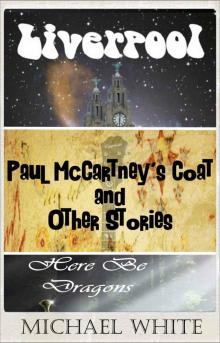 Paul McCartney's Coat
Paul McCartney's Coat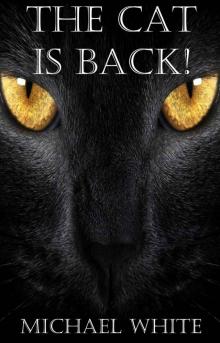 The Cat Is Back!
The Cat Is Back!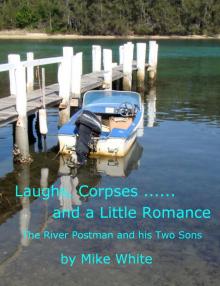 Laughs, Corpses... and a Little Romance
Laughs, Corpses... and a Little Romance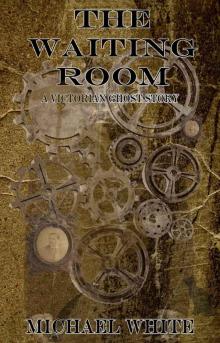 The Waiting Room
The Waiting Room Into the Light- Lost in Translation
Into the Light- Lost in Translation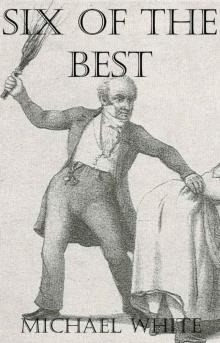 Six of the Best
Six of the Best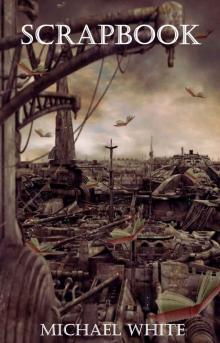 Scrapbook
Scrapbook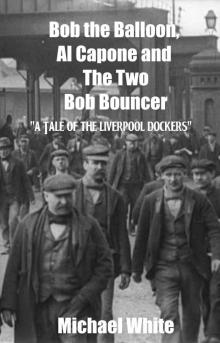 Bob the Balloon, Al Capone and the Two Bob Bouncer
Bob the Balloon, Al Capone and the Two Bob Bouncer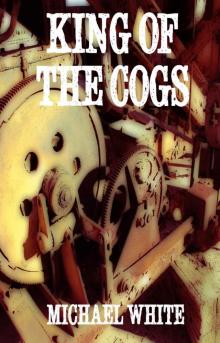 The King of the Cogs
The King of the Cogs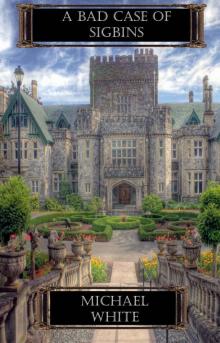 A Bad Case of Sigbins
A Bad Case of Sigbins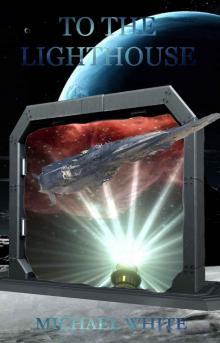 To the Lighthouse
To the Lighthouse Overboard!
Overboard!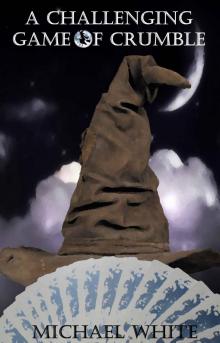 A Challenging Game of Crumble
A Challenging Game of Crumble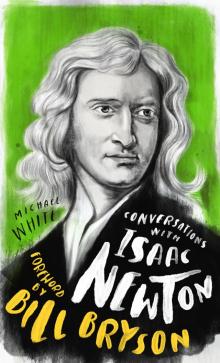 Conversations With Isaac Newton
Conversations With Isaac Newton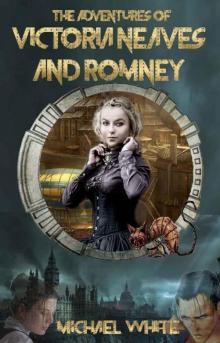 The Complete Adventures of Victoria Neaves & Romney
The Complete Adventures of Victoria Neaves & Romney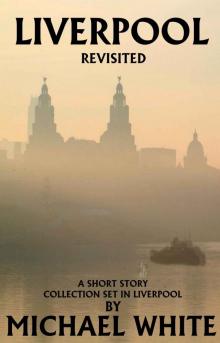 Liverpool Revisited
Liverpool Revisited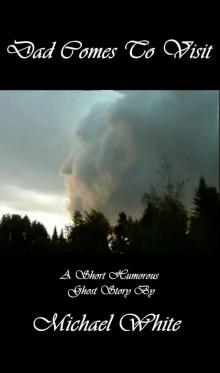 Dad Comes to Visit
Dad Comes to Visit Lachmi Bai, Rani of Jhansi: The Jeanne D'Arc of India
Lachmi Bai, Rani of Jhansi: The Jeanne D'Arc of India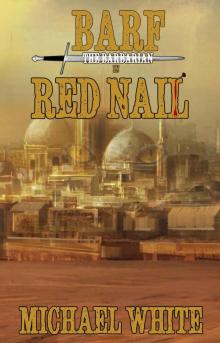 Barf the Barbarian in Red Nail (The Chronicles of Barf the Barbarian Book 2)
Barf the Barbarian in Red Nail (The Chronicles of Barf the Barbarian Book 2)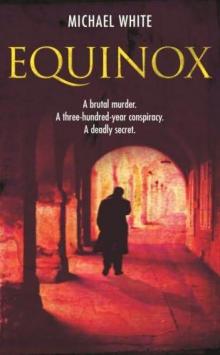 Equinox
Equinox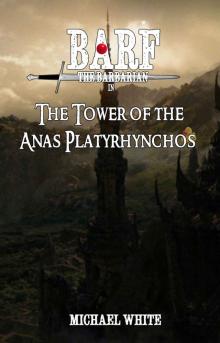 Barf the Barbarian in The Tower of the Anas Platyrhynchos (The Chronicles of Barf the Barbarian Book 1)
Barf the Barbarian in The Tower of the Anas Platyrhynchos (The Chronicles of Barf the Barbarian Book 1)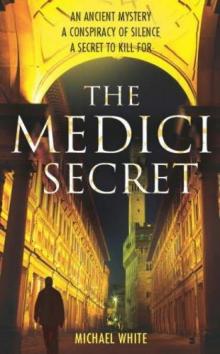 The Medici secret
The Medici secret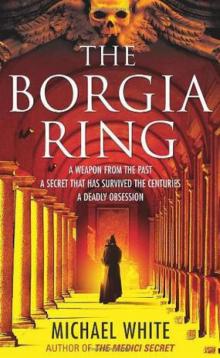 Jack Pendragon - 02 - Borgia Ring
Jack Pendragon - 02 - Borgia Ring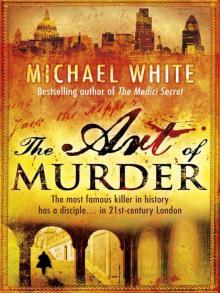 The Art of Murder jp-3
The Art of Murder jp-3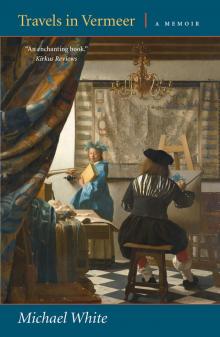 Travels in Vermeer
Travels in Vermeer